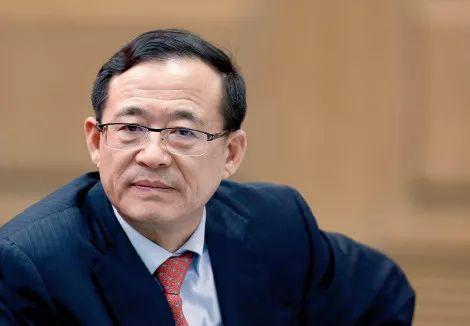Qin is the eighth provincial party secretary ousted since the beginning of Xi’s anti-corruption campaign, and the second Yunnan Party Secretary ousted. Qin’s predecessor as Yunnan Party Secretary, Bai Enpei (白恩培), was ousted on 29 August 2014 and was sentenced for death penalty with two-year reprieve. When the sentence was automatically reduced at the end of the two-year term, Bai was sentenced to life imprisonment without commutation or parole. Qin’s voluntary surrender to CCDI is a result of the investigation of CCDI against his son Qin Ling (秦岭) that was launched weeks ago. Qin Ling was a senior manager of China Huarong Asset Management Co. Ltd., where former Board Chairman Lai Xiaomin (赖小民) is being prosecuted for accepting bribes, corruption, and bigamy. Under Lai, Qin Ling served as Board Chairman of Huarong Investment Stock Co. Ltd. (02277.HK), a Hong Kong-listed subsidiary of Huarong Asset Management. According to two sources in Beijing, Qin Ling leveraged his father’s connection to help arrange meetings between already-ousted Politburo member and Chongqing Party Secretary Sun Zhengcai (孙政才) and Lai Xiaomin, who aspired to utilize his SOE experience and take senior government/party positions before being ousted. Xi has been very sensitive to local leaders colluding with each other—especially as Chongqing and Yunnan are neighboring provinces—any collusion by local leaders would potentially pose threat to regime stability and central government’s firm grasp of local politics. Other than Qin and Bai, ousted provincial party secretaries include aforementioned former Chongqing Party Secretary Sun Zhengcai, former Hebei Party Secretary Zhou Benshun (周本顺), former Liaoning Party Secretary Wang Min (王珉), former Tianjin Party Secretary Huang Xingguo (黄兴国), former Gansu Party Secretary Wang Sanyun (王三运), and former Shaanxi Party Secretary Zhao Zhengyong (赵正永). In Yunnan, five other vice-provincial officials have been ousted since the beginning of Xi’s anti-corruption campaign, including former Yunnan Vice Party Secretary Qiu He (仇和), former Yunnan CCPSC member and Kunming Party Secretary (张田欣), former Yunnan CCPSC member and CCP Committee Secretary-General Cao Jianfang (曹建方), former Yunnan CCPSC member and Political and Legal Affairs Commission Chairman Meng Sutie (孟苏铁), and former Yunnan Vice Governor Shen Peiping (沈培平)—all of whom had worked under both Bai and Qin, who were Yunnan Party Secretary from 2001 to 2011 and from 2011 to 2014, respectively. Even before Qin’s ouster, Yunnan was one of the provinces where corruption was most prevalent—Qiu He was Zhang Tianxin’s predecessor as Kunming Party Secretary before being promoted to become Yunnan Vice Party Secretary, while Zhang’s successor as Kunming Party Secretary Gao Jinsong (高劲松) was also ousted, right after his Kunming Party Secretary appointment when Yunnan CCPSC didn’t even have the chance to appoint Gao into the provincial CCPSC. This pattern, where a number of officials consecutively taking the same position were all found corrupt, is distinctive especially in Yunnan, which means the corruption networks were stronger and more interconnected than those of other provinces. With Qin’s latest ouster, we expect that he will give up more names of his corrupt subordinates during the investigation in exchange for shorter sentence, especially if he himself did not take much bribe other than helping his banker son politically. This means that more disruption should be expected in local officialdom of Yunnan, which is still recovering from massive ousters caused by the investigation of Bai Enpei and Qiu He, former no.1 and no.3 of the province. Notably, Qin was a senior leader of Communist Youth League (CYL) in Hunan in the early stage of his career, and was very well-liked by Ling Jihua (令计划) and Li Yuanchao (李源潮), chief of staff and HR manager to Hu Jintao, respectively. The ouster of Qin Guangrong also increases the chance of ouster of former Jiangsu Party Secretary Luo Zhijun (罗志军), who was Li Yuanchao’s close associate in Jiangsu and another senior figure of CYL.

